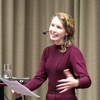cheating
Still heating: Unfolding a typology of climate obstruction
In N. Marschner, C. Richter, J. Patz, & A. Salheiser (Eds.), Contested climate justice – Challenged democracy: International perspectives (pp. 59-71). Campus Verlag GmbH Abstract Earth is on a catastryet, there is little sign of halting the rise of global greenhouse gas emissions orstopping the extraction of fossil fuels. Against this background, in this articlewe re-engage with a recently proposed typology supposed to cover three modesthrough which effective climate action has been obstructed. These are, first,primary obstruction, that is, the spread of disinformation and/or denying the veryexistence of anthropogenic climate change. Second, secondary obstruction concernsmore or less deliberate obstruction via opposition to climate action and policiesvia, for example, reference to “the threat of deindustrialisation”. Finally, tertiaryobstruction denotes modes of living which, while not necessarily obstructingeffective climate change intentionally, concerns “living in denial”. Drawing onrecent research and examples, we revisit this typology.
Climate Obstruction - How Denial, Delay and Inaction are Heating the Planet
Routledge, 156 p. InClimate Obstruction: How Denial, Delay and Inaction are Heating the Planet, Kristoffer Ekberg, Bernhard Forchtner, Martin Hultman and Kirsti Jylhä bring together crucial insights fr
Jeff McMahan: Creating Happy Animals in Order to Eat Them
Jeff McMahan is White's Professor of Moral Philosophy at Oxford University, a distinguished research fellow at the Oxford Uehiro Centre for Practical Ethics and a fellow of Corpus Christi College. Abst
Katie Steele: Neutrality about creating good lives - No panacea for longtermism
Place: At the Institute for Futures Studies, Holländargatan 13, Stockholm, or online.REGISTERAbstractThe principle of neutrality can be seen as a direct response to the totalistapproach to evaluating popu

Creating happy animals in order to eat them: Jeff McMahan and Tim Campbell
In recent debates about the ethics of eating animals, some have advanced the claim that if people cause animals to exist and give them good lives in order to be able to eat them, then even if the anim

Katie Steele: Neutrality About Creating Good Lives - No Panacea For Longtermism
The principle of neutrality can be seen as a direct response to the totalist approach to evaluating populations of varying constitution and size: while the latter holds that the addition of a good lif
Completed: How do human norms form and change?
Many societies are dominated by norms that are, in the long run, harmful to their members. How can these norms change?
New study: This is why Italians are so unwilling to pay taxes
In Western Europe, Italy is at the top when it comes to tax evasion. In 2013, an estimated 27 percent of the entire tax revenue in Italy was evaded. What are the reasons for this? Political scientist ".

New Methods for Sharing Research Findings with Society
Finding new formats for presenting policy-relevant research results.
Persson's merely possible persons
in: Utilitas 32 (4): 1-9 (2020) Abstract:All else being equal, creating a miserable person makes the world worse, and creating an ecstatic person makes it better. Such claims are easily justified if it








